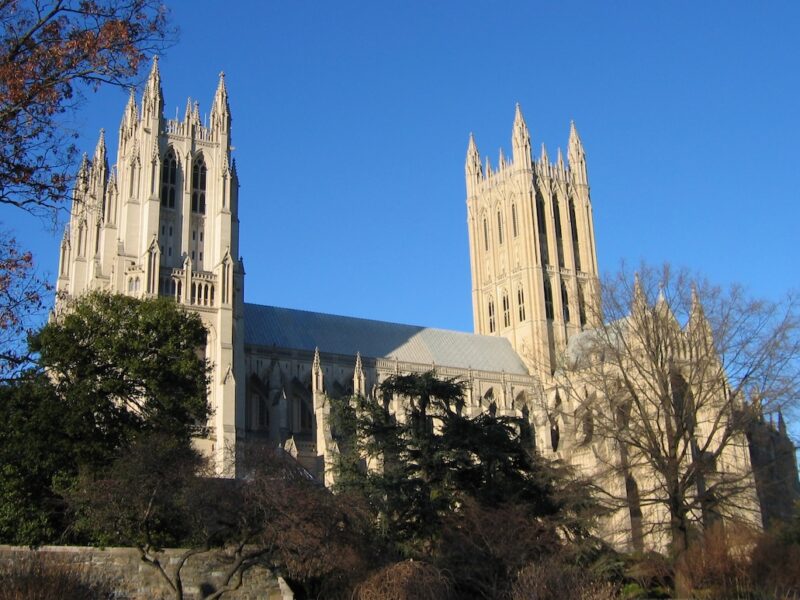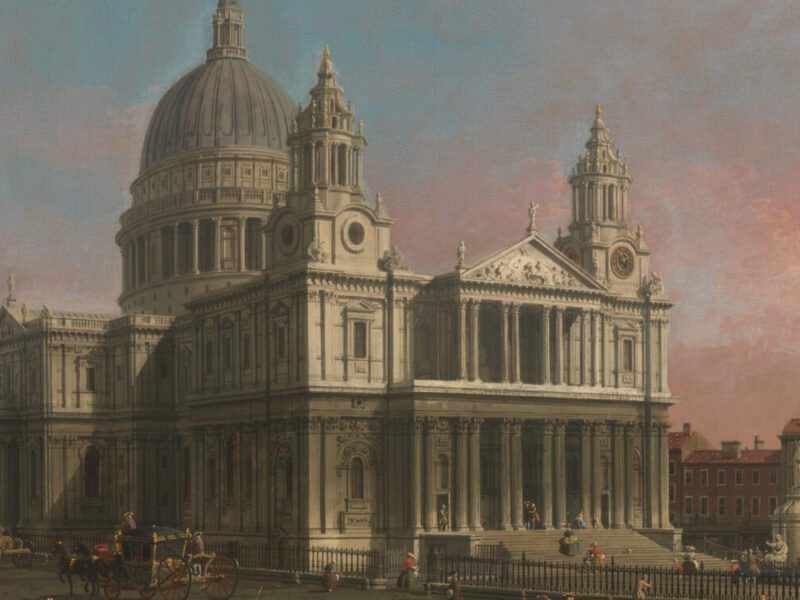For North Americans, an obvious feature of our culture is consumerism. This is equally true of the church world as it participates in the wider culture. Most everyone who attends a church has (or will) attend numerous other churches of various denominations over his or her lifetime, often solely based on personal choice or preference. Indeed, it is the rare Anglican parish that has more than a tiny handful of “cradle” Anglicans in attendance. No doubt this is exacerbated by the superabundance of information we have access to via our phones and other devices. The Internet makes it all too easy to shop churches, compare churches, and complain about churches. With that superabundance of choice can come anxiety over whether one has found the “one true church” and whether one’s church is on the right path in terms of practices or even doctrines.
In this spirit, Fr. Jesse Barkalow’s recent piece, “Of Article XX of the XXXIX Articles of Religion: An Encouragement to the Readers and Authors of the North American Anglican” makes a good point: we do indeed often worry about things that are not our responsibility. Indeed, he rightly points out that our bishops bear the primary responsibility for stewardship of the Anglican Church in North America (ACNA).
Yet, I would argue that Article XX neither lets the laity nor the lower clergy off the hook. For context, here is the Article in its entirety (emphasis added):
XX. Of the Authority of the Church
The Church hath power to decree Rites or Ceremonies, and authority in Controversies of Faith: And yet it is not lawful for the Church to ordain any thing that is contrary to God’s Word written, neither may it so expound one place of Scripture, that it be repugnant to another. Wherefore, although the Church be a witness and a keeper of Holy Writ, yet, as it ought not to decree any thing against the same, so besides the same ought it not to enforce any thing to be believed for necessity of Salvation.
As the title says, the article concerns the authority of “the Church.” Is “the Church” only the bishops? Is it only the top leaders? Fortunately, Article XIX (just a few sentences earlier) defines “the Church” for us: “The visible Church of Christ is a congregation of faithful men, in which the pure Word of God is preached, and the Sacraments be duly ministered according to Christ’s ordinance, in all those things of necessity are requisite of the same” (emphasis added). That is, the Church is the entire people, not just the leaders. And thus, the authority over rites, ceremonies, and controversies is vested in more than just the bishops.
Article XIX is not, of course, advocating congregationalism or another purely democratic approach to polity. Article XXII goes on to talk about proper authority for ministering the Word and Sacraments in the congregation. Article XXXVI goes on to talk about the ordinal and proper ordained ministry. Ecclesiastical authority is real. But it is not absolute.
Indeed, one of the most important developments of the Reformation was its battle against clericalism. In the medieval Church, the separation between clergy and laity was of an extreme that could hardly be imagined today. The essence of the Church was believed to be the bishops (particularly the Bishop of Rome). In most matters of religion, the laity had very little role at all. Even in Sunday Worship, the laity had their private prayers while the priest performed the Divine Liturgy, and rarely the twain did meet. It took the Protestant Reformation to reintroduce lay participation in any significant way.
In our own current context of the ACNA, the laity is intentionally included in church governance, including governance over issues of rites, ceremonies, and doctrinal “Controversies of Faith.” This happens at all levels of Church governance.
At the provincial level, deliberation and voting upon any changes or amendments to the Canons is the responsibility of the Provincial Council and Provincial Assembly. Each diocese sends delegations to each body that include an equal number of clergy and laity.[1] Furthermore, many provincial committees and task forces include lay participants, particularly when specialized expertise is needed. For example, several lay scholars were on the committee that created our Provinces’ primary rule for rites and ceremonies, the 2019 Book of Common Prayer, despite its ultimate ratification and approval being in the purview of the bishops.
At the diocesan level, it is typical for each congregation to send a number of lay delegates to the diocesan synod (or its equivalent) for the purposes of voting on various diocesan matters (including changes to the diocesan canons). Additionally, most diocesan standing committees (or equivalent) include an equal number of lay representatives and clergy representatives elected at synod. Indeed, in most dioceses, even the election of the bishop requires lay representatives on the nomination committee.
At the parish level, lay participation in governance is even more common. Vestries are typically made up entirely of lay people as the primary arm of local congregational governance. Lay people run most of the local ministries. Lay people make up the majority of search committees for new rectors and discernment committees for those considering ordination. Indeed, if an ACNA parish wished to disaffiliate with its diocese or even with the ACNA itself, the laity are essential in the vote to do so canonically.
While all this may sound needlessly political and tedious, it is indeed necessary. We need the participation of the entire Church, not just the bishops or other clergy, if we are to discern a wise and prudent course, whether at the parish, diocesan, or provincial level. And that means that it is essential for those who are concerned with the future of the ACNA to step up to the plate and participate in its governance. To do so often requires a measure of sacrifice as well as both spiritual and practical maturity. But taking on such responsibility is far more effective than complaining on social media.
Furthermore, as much as all polity is (by definition) political, there is an additional element of accountability all members must consider: our accountability to Scripture and to our Formularies. Like all of our Formularies, Article XX asserts the supreme authority of Scripture. The laity has a responsibility to hold even the bishops to the Bible’s standards (presented in a respectful manner, of course). As such, concerned lay persons have a responsibility to know the Scriptures. While the clergy and bishops have authority as teachers, the laity is never supposed to blindly submit to authority that violates Scripture.
Similarly, we are all under the authority of the Prayer Book, Articles, and Ordinal. One of the benefits of such Formularies is that they are an objective standard for rites, ceremonies, and doctrine to which both the clergy and laity are subject. A “Father knows best” kind of clericalism has no place in biblically sound Anglicanism.
It is true that there is comfort in being under authority. I certainly rest easier knowing that the bishops are there to handle matters that are “above my pay grade,” as it were. I hope the laity of my congregation can do the same, especially in areas that are my responsibility as their rector. Yet knowing and trusting the chain of authority does not absolve any of us from our duties as churchmen, whether we be members of the laity or of the clergy. As Fr. Barkalow’s article describes, the future of the ACNA does not ultimately rest on any of our individual shoulders. But it does rest on all of our collective shoulders if we are to be “A congregation of faithful men.”
Note
- For Provincial Council, each diocesan delegation consists of two lay delegates, one non-episcopal cleric, and one bishop. For Provincial Assembly, each diocesan delegation gets two lay delegates, two non-episcopal clergy, and all bishops, with an additional lay delegate and cleric per 1,000 ASA. See https://detestableenormities.substack.com/p/church-civics-tec-vs-acna-polity for a good summary of these canons. ↑




